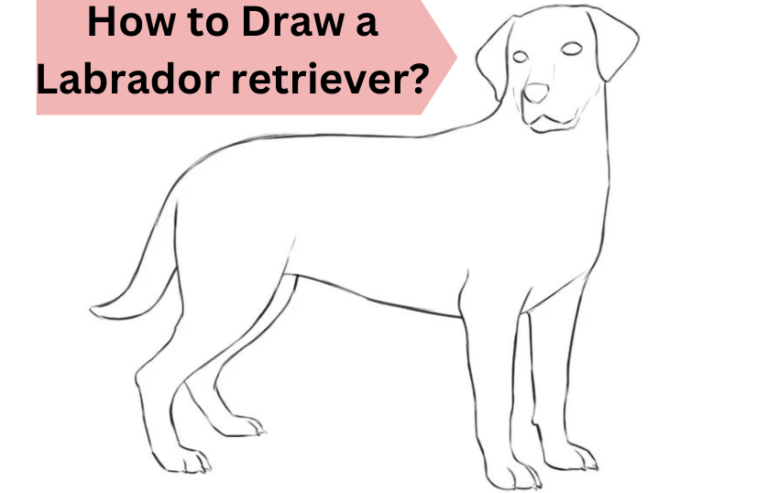How to Train a Labrador Retriever? 5 Tips to Train Your Lab

Labrador retrievers frequently top the list of most prevalent dog breeds. These keen, social dogs are recognized for their friendly temperaments and tolerance. Usually bred as hunting canines, Labs are among the most prevalent service dogs, working as guide dogs for blind individuals and as therapy canines. In this article, I will look into how to train a Labrador Retriever? By socializing these canines early, you can tap into Lab’s natural instincts as guard dogs and companions.
Table of Contents
How to Train a Labrador Retriever Puppy? Explained
If you’ve just bought a new Labrador puppy, you can start puppy training if your training approaches depend upon positive reinforcement. You can characteristically begin training when you get your Labrador puppy, which will generally be approximately 8 weeks old.
1. Puppy-proof your home
Ensuring your house is safe for your puppy will aid in preventing coincidences and aid your dog in feeling safe. Have electric cords hidden or out of range. Please don’t feed your puppy from the table; retain toxic foods and houseplants away from them. Have cleaning products, drugs, and items that can create choking dangers out of reach, and lock windows, toilets, as well as trash bins.
2. Start with housetraining.
Within your home, your dog must have a place where they feel relaxed. If crate-training your dog, pick a crate that isn’t much big; your pooch utilizes the bathroom in the space; however not so small; thus, your dog feels confined.
Show your puppy the door where he can exit to utilize the bathroom outside. Play with them; thus, they have good relations with the space and reward their potty-training improvement.
3. Familiarize with basic commands.
When you carry home an eight-week-old puppy, you can start teaching them basic commands. Select a distraction-free location where you can create eye contact and the dog’s consideration and grasp the treat above your pup’s head. Confidently state your command and reward your puppy once they complete the act.
4. Progressively work on socialization.
Slowly allow your Labrador to meet new persons, starting with people and moving on to greater groups once it looks comfortable. It’s great to start socialization with loved ones who will see your Labrador retriever often.
After that, you can introduce extra unfamiliar individuals one by one. Ensure your puppy meets individuals with diverse appearances, e.g., kids, somebody with a beard, in a wheelchair, wearing sunglasses, and grasping an umbrella. Keep in mind to reward your dog with treats for their improvement in handling new skills.
5 Important Tips for Training a Labrador Retriever Dog

Training a new Labrador is a time-consuming: however, rewarding procedure. Deliberate these tips once you first take your Labrador Retriever puppy home:
1. Have patience.
Training a new Lab puppy for the initial time can be intimidating, but keep in mind that your dog’s brain is still establishing, and it’s learning all from scratch. If you don’t need your dog hopping on furniture, such as mildly, place them away from your house furniture and reward them once they stay away.
Be steady to help them recall the rule. Initiating early can ultimately pay back, and endurance is key because puppies as young as 8 weeks can be distressed by compliance training approaches that depend upon undesirable reinforcement. Additional nurturing approaches are operative and appropriate at that age.
2. Don’t over-correct.
Keep training time short—no more than 3 minutes—and structure them similarly to a game or playtime. Pups are young and tentative, and they hold short attention durations. Planning a world of instructions they can’t yet hold can be worrying.
3. Consider small exercises.
Positive reinforcement training for puppies must arrive in short house-training exercises. Present socialization exercises in small quantities so as not to overcome your puppy.
4. Consistency
There is a mass of training tips when we talk about Labrador puppy training; however, it’s significant that the technique is consistent. Do some study on a technique or training program that you can apply to your dog. If you consider a clicker such as keep utilizing the same category; thus, the dog can become used to the technique.
5. Use a kennel
Meanwhile, Labradors are bigger dogs; they can grasp their bladders earlier in life; thus, potty training can occur almost instantly. Considering a kennel or crate training is cooperative since your puppy can become used to a place they know to be safe. Ensure your kennel or crate is linked not with punishment; however, with a superior place of protection in their new home.
Frequently Asked Questions
Is it easy to train your Labrador Retriever?
If you love Labradors and are seeking a dog breed that’s easy to train, you are lucky: This dog accurately meets what you want. Labrador Retrievers are easy to work with—these dogs are even thought to be one of the most trainable dogs worldwide.
What is the ideal age to train a Labrador Retriever?
Whether your Labrador puppy will be a family friend or a working pooch, it’s a great idea to begin with their training the moment you get them. Always begin with socialization as well as household conducts as early as eight weeks old. After that, move to sit, stay, stability training, or walking on a leash among 12 and 18 weeks.
Final thoughts: How to train a Labrador Retriever?
As you can realize, a great deal goes into training your Labrador Retrievers. Whether you are just seeking an obedient companion pooch or a hunting one, it all begins with some fundamental dog psychology as well as understanding how your canine thinks and acts.
Following these essential tips will aid you in getting the most out of your Labrador training sessions, and with time, you will get your retriever to attain their true talent.







I?¦ve recently started a web site, the information you provide on this site has helped me tremendously. Thank you for all of your time & work.